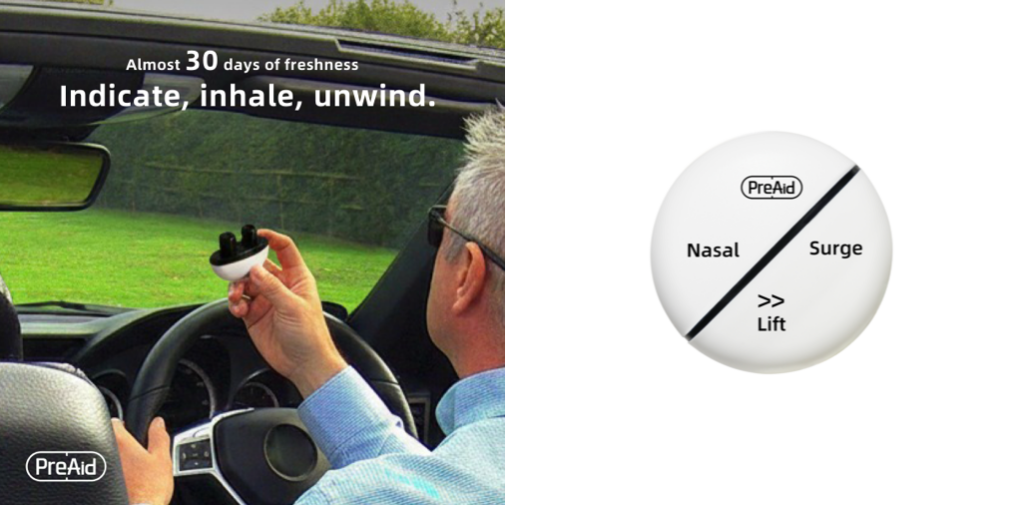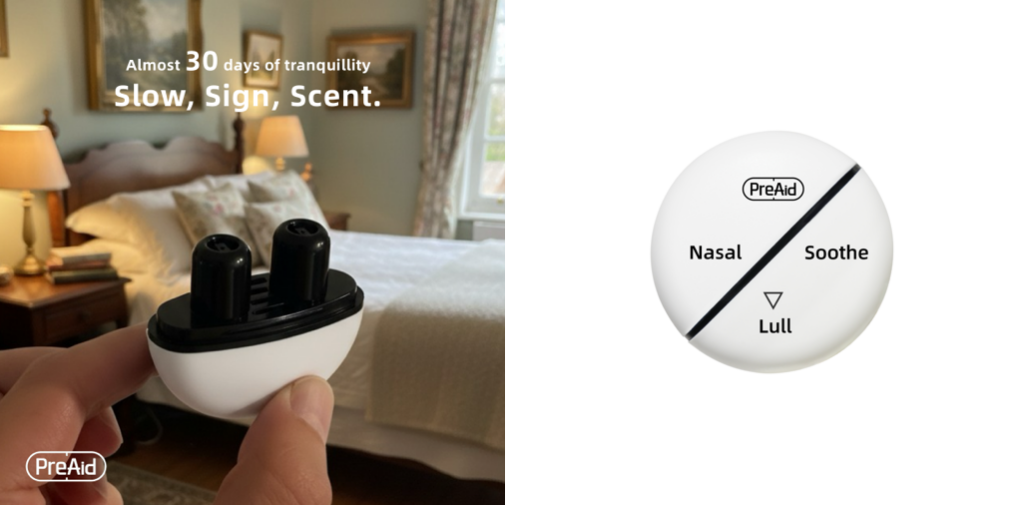Dozywave’s sub‑brand PreAid today unveils a new pocket scent companion — the PreAid Twin‑tube Nasal Inhaler.
Led by international independent designer Alan Xu and inspired by the UK national speed limit sign, its bold circular symmetry is translated into an everyday object of beauty you can carry anywhere. It sits between pace and pause, turning breathing into a small ritual. More than a functional aid, it’s a style piece you’ll gladly slip into your bag, keep on the bedside or place on your desk — visually modern and restrained, with an immediate yet gentle olfactory effect.

The design language leans into an iconic, sign‑like aesthetic. The round silhouette and balanced proportions offer instant recognition, a quiet nudge that caring for your breath is caring for yourself. The twin‑tube structure answers the “two‑track day” — one piece, two uses: clarity and focus by day; calm and rest by night. The product is intentionally positioned as a lifestyle object, blending into daily scenes with considered ease.
Two scents map to two states, under one attitude. The Alert blend is crisp, bright and purposeful, built on menthol, eucalyptus, rosemary, lemon and isopropyl myristate. One cool inhale pulls you back to the present; eucalyptus and mint clear the nose in a snap, while rosemary and lemon bring sharp thinking and a clean, uplifting trail. The Sleep blend is gentle, steady and soothing, led by lavender, bergamot, chamomile and cedarwood — a soft floral‑woody corridor that guides you from the day’s noise to a settled pre‑sleep calm.
Made for modern life, it suits professionals and students who want a quick morning lift or an afternoon reset; travellers who need a pocket pick‑me‑up or a touch of relief on the move; those looking to establish a smoother wind‑down before bed; and design lovers who enjoy the meeting point of utility and aesthetics. In a line: by day, it keeps you clear in the bustle; by night, it settles you into the quiet. PreAid is a small, breathing companion — a gentle prompt for your rhythm.

Using it is straightforward: twist to open the cap and reveal the inhaler tube, choose the relevant side (Alert or Sleep), hold to one nostril and inhale gently and deeply 1–2 times; avoid overly frequent use in a single session. Store in a cool, dry place away from direct sunlight and heat, and keep out of reach of children. A note of care: this is an aromatherapy inhaler, not a medicine. If you have serious respiratory conditions, asthma, are pregnant, or are sensitive to essential oils, consult a healthcare professional before use. Discontinue if discomfort occurs and seek medical advice.
The PreAid Twin‑tube Nasal Inhaler will debut first on the Dozywave official website, with a simultaneous launch on Amazon.
PreAid Twin-Tube Nasal Inhaler Stick>>
Enjoy~


